Stories
Ashley Fogel
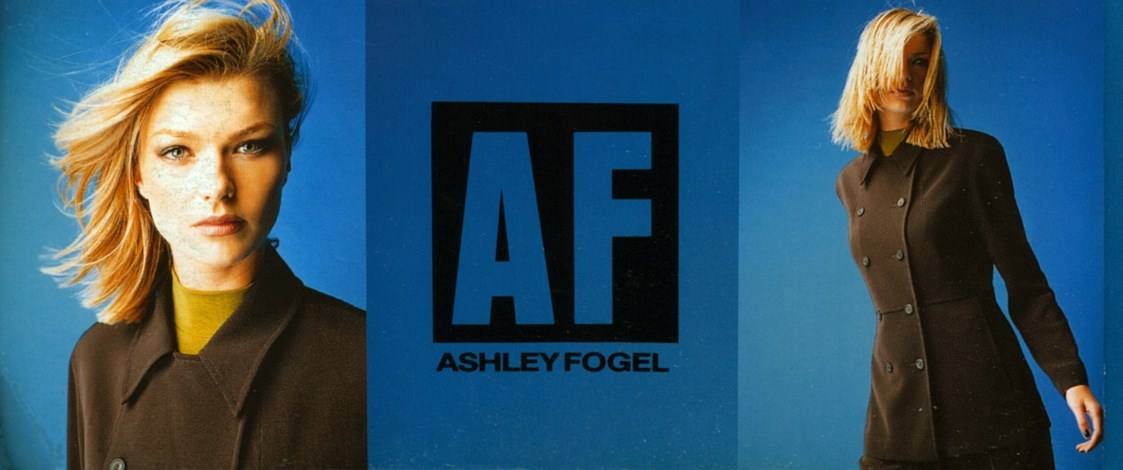
In 2008 Ashley Fogel was one of only three New Zealand designer labels to be given floor space in David Jones’s flagship Sydney store. The label had earned that prestigious position thanks to their consistent performance in delivering stylish ready-to-wear collections that women understood and enjoyed. It was a well deserved accolade for Ashley Fogel who gave his name to the label with a manufacturing legacy of more than half a century.
Five decades earlier Ashley’s parents Margaret, a trained seamstress from Christchurch and Adam Fogel a Polish refugee, had started a women’s fashion enterprise of their own. Initially making lace blouses Ninon Modes began in the front room of the Fogel’s apartment in Wellington. The business grew as their garments found a place in the region’s department stores. With this success the business expanded to make other outerwear for women and moved to bigger premises. It established a reputation for its quality and its wide appeal to ordinary women making clothes under the Ninon, Fashioncraft and Maggie Adams labels. Konstantina Moutos, who worked there briefly in 1983 as a design assistant, described their client as "Mrs New Zealand".
Ashley grew up in this successful manufacturing environment and was himself eager to work in the industry, although his preference was for menswear. In 1976 he was on his way to London to take up an apprenticeship with Hardy Amies when his older brother died in a tragic hang-gliding accident. Adam Fogel was in his mid-60s so Ashley returned to help out with the business. When Adam died four years later, Ashley bought the manufacturing business from his parents’ estate. He was 26 years old.
In the early 1980s making clothes under licence in New Zealand was a viable option for a garment manufacturer as it was fashionable to wear international labels. Ashley formed a relationship with French label, Daniel Hechter, and started to make their range of clothing, under licence, in New Zealand.
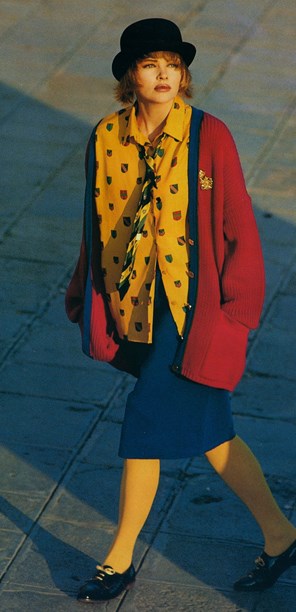
Daniel Hechter separates, made in New Zealand under license by Ashley Fogel, 1986.
It was through this relationship that he met his future wife Wende, who was working as a designer for the Daniel Hechter company in Australia.
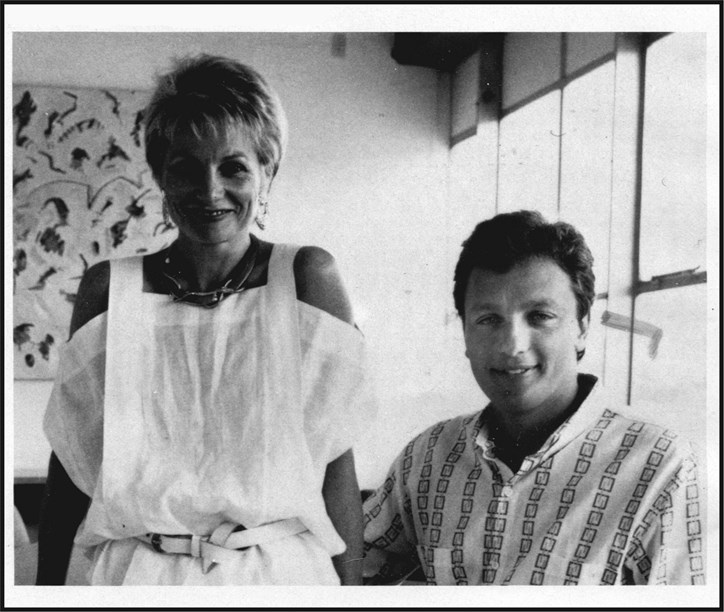
Ashley and Wende Fogel, 1986.
New Zealand manufacturing was hit hard by the political and economic changes of the late 1980s. The stockmarket crash, the attendant retail slump and the removal of import restrictions and tariffs combined to devastate many in the fashion industry. Ninon Modes, which was based in Garrett Street in Wellington at this time and at its peak employed 55 people at the factory, reduced costs by moving the workroom out of the central city to Miramar.
In an interview in 2012 Ashley told Radio New Zealand’s Lynn Freeman that the clothes they had been producing at this time "wasn’t really his thing". He did however recognise the value of his skilled staff and the potential in the business for a future pathway with a new customer. "Why can’t we transform this factory and drag it 20 years forward and do what my friends would like to wear?" In 1991, Ashley and Wende launched a new label called Ashley Fogel with Wende as the head of the design team.
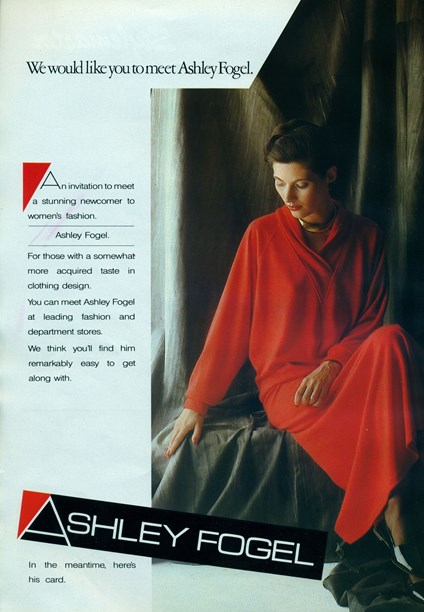
Ashley Fogel advertisement, 1986. Image © Ashley Fogel.
The label quickly became known for its tailoring and its use of luxurious fabrics. One fabric, a brightly coloured wool plaid from Germany, was made into pleated skirts in a similar style to netball skirts. Ashley says this style of skirt "suited everyone", an achievement when the emphasis on tailoring meant that he measured in millimetres rather than centimetres.
As fashion became more casual during the 1990s, they broadened their collections to include knitwear and casual jackets and dresses. In 1997 Ashley and Wende launched a top-selling line of jeans that he says were cut to fit a woman's body. While the label focused on women’s outerwear they also designed accessories such as leather handbags and belts.
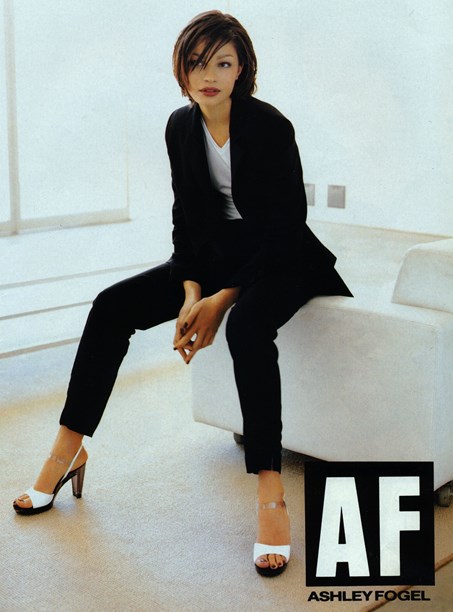
AF Ashley Fogel advertisement, 1998. Image © Ashley Fogel.
On April 2012, Ashley Fogel presented his his spring/summer 2012/13 collection at Wellington’s Fashion Week. But the stress of years of struggling to keep his business competitive against the flood of imported labels made in China had taken its toll and he suffered a heart attack.
Ashley reluctantly decided to closed the doors of his Miramar factory. "I’ve always enjoyed the evolution of fashion - what’s coming next," he told Lynn Freeman. "Every day, we dress ourselves in a statement of art in your own personal way."
However, his time in the fashion industry hasn’t ended yet. He moved to Auckland after he closed his manufacturing business and designs for the Auckland store Hartleys. He now creates Ashley Fogel clothes exclusively for the retail chain of 25 outlets.
Text by Myounghwa Kang. Banner image from Ashley Fogel AF advertisement, 1997.
Published June 2019.